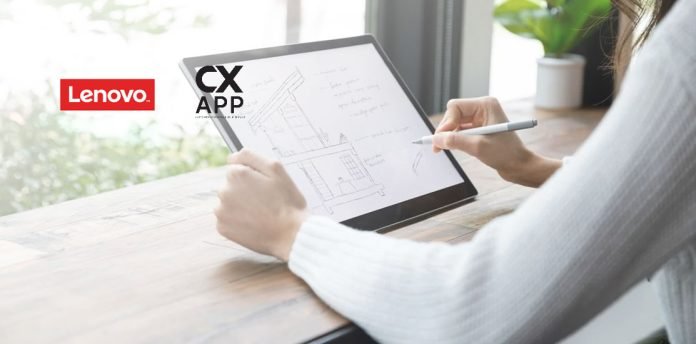To facilitate a healthy, productive back to work transition, it’s necessary to focus on three key areas: the workplace, the workforce, and the technology to support both. A Gartner survey reveals 64% of HR leaders choose to make employee experience a high priority during return to work planning.
Lenovo’s Think IoT Workplace Solutions ecosystem — with help from partners like The CXApp — will validate, deploy, and manage global end-to-end solutions via a turnkey offering that will unlock the power of the Internet of Things (IoT) in the workplace. Lenovo validates each partner in the Think IoT ecosystem with a comprehensive 140 checkpoints across the highest standards of reliability, security, scalability and serviceability.
The Future of Work Is Connected
People, machines, devices, and physical spaces are part of an emerging, smart workplace network necessary for many large organization’s digital transformation.
Workplace technology has the power to make offices safer and more reliable upon re-entry as follows:
- Foster networking and collaboration
- Automate routine tasks which put people/jobs at risk
- Keep employees informed and engaged
The Lenovo Think IoT ecosystem pulls industry leaders to address challenges that the return to work poses.
“We’re hoping to provide connection points for every employee to influence behavior and empower them to make safe decisions in real-time based on campus-specific data that is coming through one app,” relates Leon Papkoff, CEO. A front-end mobile app is the only technology offering clear, two-way communication between employees, other systems, and a network of connected devices.
The CXApp’s smart campus features activates a safe, connected workplace to support employee health and safety.
- Beacon and Sensor-Based Communications: Send personalized, location-aware alerts
- Peer-to-Peer Social Distancing Alerts: Identify and log a breach in social distancing requirements
- Location-Based Contact Tracing: Identify and log contaminated spaces
- Employee Density Monitoring: Monitor high traffic and densely populated areas
- Health Questionnaire: Require and validate daily self-assessment
- Desk Booking: Reserve desks, cubicles, offices, and workspaces
- Contactless Interactions: Trigger smart, automated interactions
- Real-Time Alerts: Deliver alerts and notifications locally and globally
These use cases are vital to any to work strategy. “Offices will feel different, but this extra layer of information and context will provide employees assurances they’re looking for,” Papkoff notes.












